Why Do Michelin Tires Dry Rot? Causes And Prevention
I know how bad it feels when your tires prematurely show symptoms of dry rotting, leaving you with a hefty bill to replace them. Understanding the causes and prevention can save you from blowouts and keep you and your passengers safe.
Why do Michelin tires dry rot? There can be various factors, including improper storage, exposure to sunlight, high temperatures, and low tire pressure, can cause dry rot in Michelin tires. These factors can contribute to the deterioration of the rubber, leading to cracks and brittleness.
What Is Tire Dry Rot?
Tire dry rot is a condition that is visible when the rubber composition of a tire begins to degrade over time. It is also known as sidewall cracking or weather checking.
Dry rotting reduces the grip of the tire and makes it hard. Harder tires provide decreased control, especially in winter. These hard tires fail to provide traction, making them highly hazardous.
Checking only the surface of a tire is not sufficient. It is important to remove the tire from the wheel axle and thoroughly inspect it inside and out, as dry rot can also occur inside the tire.
When the tires start to rot, they show small cracks that usually go unnoticed and later damage the whole tire part by part.
Severe dry rot on vehicles can be a safety hazard. As the rubber deteriorates, it can cause a slow leak in the tire resulting in the expansion of the rubber. It leads to a higher risk of blowouts or other failures.
What Causes Michelin Tires To Dry Rot?
These are the primary reasons why Michelin tires dry rot.
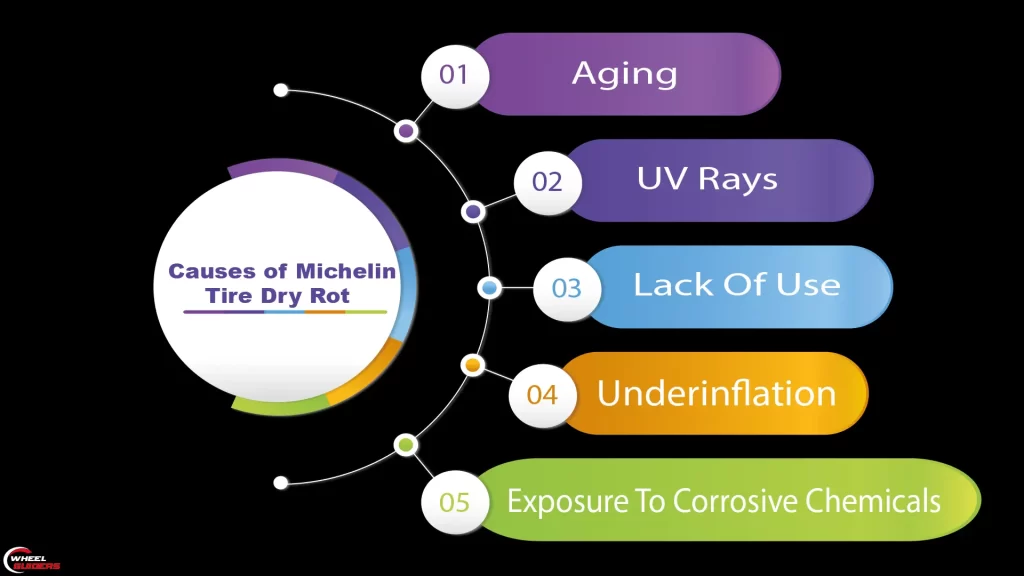
Aging
Aging is one of the major causes of tire dry rot. The natural aging process of the tires loosens the rubber compound leading to reduced elasticity. This makes the tire prone to cracks and dry rots.
UV Rays
Direct exposure to sunlight can affect the tire’s rubber, as it is susceptible to ultraviolet light. It compromises the structural integrity of your tires, and they can crack and dry out due to losing flexibility over time.
Lack Of Use
Tires that sit for a long time get prone to dry rot due to the degradation of rubber compounds over time. The heat generated by the friction between the road and the tire help keeps the tire supple and flexible. This is one of the major reasons why Michelin tires dry rot.
Underinflation
Underinflated tires don’t just affect the tires, but they can also have adverse effects on the vehicle. Tires that are improperly inflated experience more stress on the sidewalls and excessive flexing, which can cause the rubber to weaken and break down, leading to dry rot
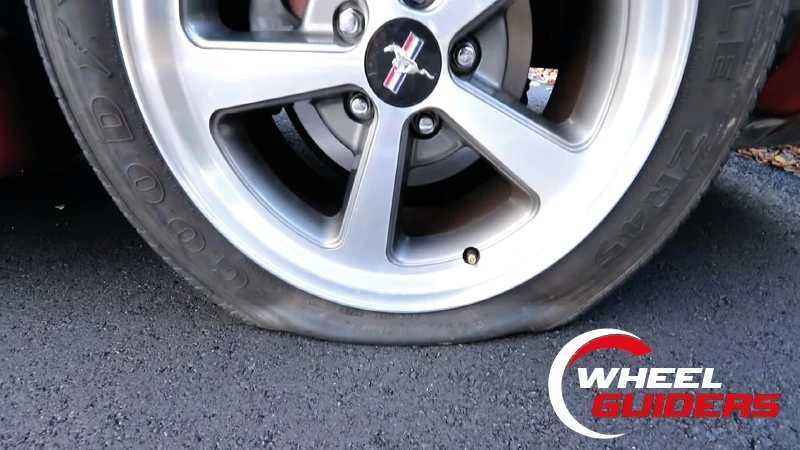
Exposure To Corrosive Chemicals
Exposure to corrosive chemicals can accelerate the process of dry rotting by spreading quickly through the chemical bonds of the tire and rupturing them hence causing tires to lose their integrity.
How Long Do Dry Rotted Tires Last?
It is strictly not recommended to drive on rotted tires. However, rotted tires may often endure for six years. The period will last 7 or 10 years if you’re fortunate enough.
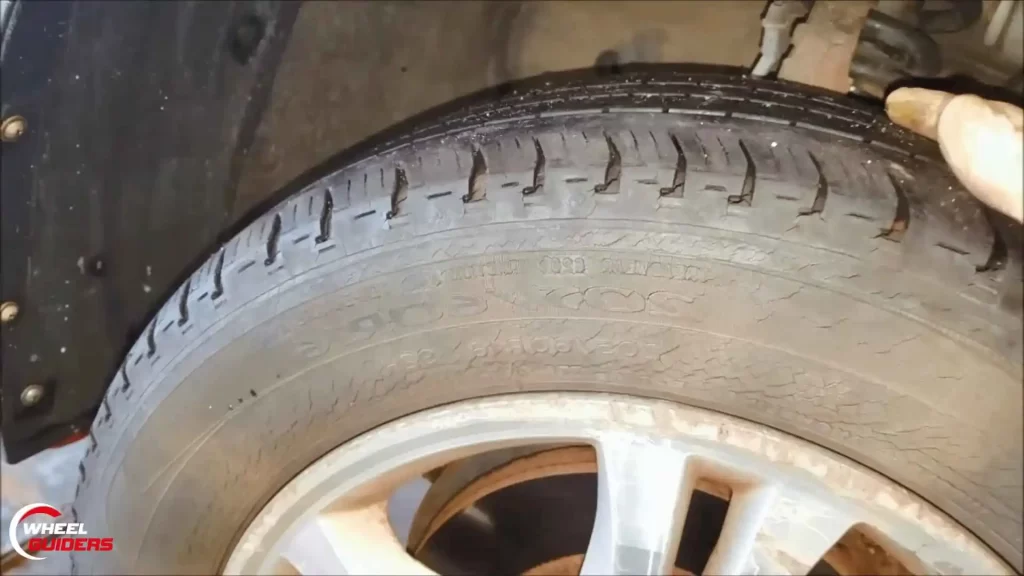
Consulting a tire expert can provide valuable insights into the maintenance and lifespan of your tires. By understanding how long your tires are expected to last, you can plan for routine maintenance and budget for future tire replacements.
How To Prevent Tire Dry Rot
Inspect the tires
Make sure to frequently check for any signs of dry rots on the tires. Test the tread of the tire. Regular inspection is the best way to spot defects and damage beforehand and get them repaired.
Store in a Dry Place
Dry rot can also develop in your tires if left out in the sun for an extended time. To counteract this and prevent your tires from being exposed to sunlight, it is advisable to store them in a shaded area. If keeping them in the shaded area is impossible, they should be covered with a cloth when parked.
Cleaning is essential
The easiest way to clean your tires is with a designated wipe like crocodile cloth auto cleaning wipes, as they dissolve and quickly absorb all the dust particles. Use them once a month and check the tires for any cracks.
Under Inflated
Under inflated tires are one of the main reason why tires fail. Poorly inflated tires can cause the tread to break and generate excessive heat. As a result, tires develop dry rot and other issues. Frequently check the tire pressure and maintain it to the recommended PSI to avoid safety hazards.
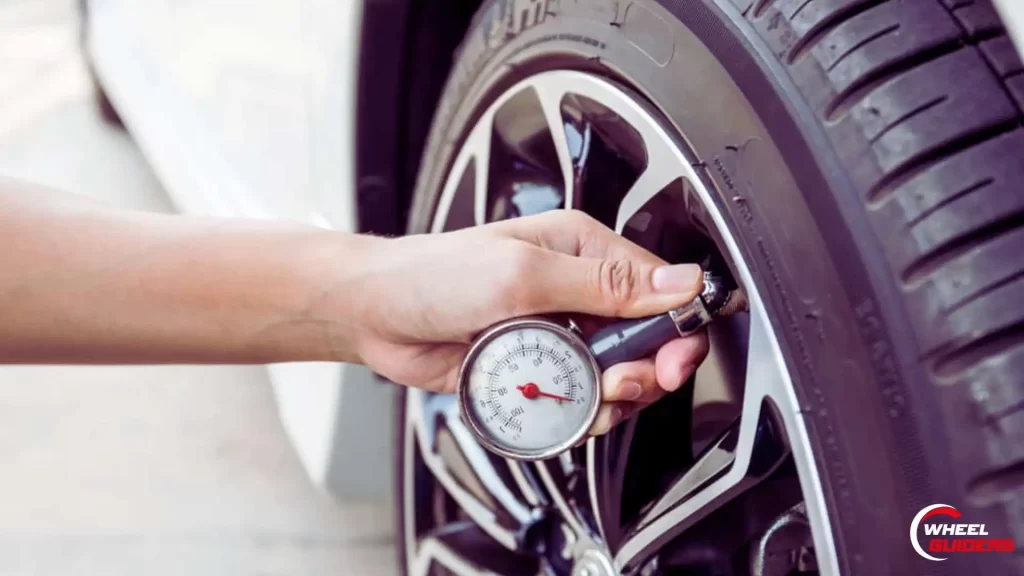
Avoid exposure to corrosive chemicals
One should avoid using alkalis, acids and solvents when cleaning or polishing tires to refrain from damaging tires. It is important to use expert advised chemicals or product to make tires black again.
How To Fix Dry Rotted Tires
It is important to note that experts only recommend fixing tires with sufficient tread depth in them. It is preferable to replace tires if they are old or lack tread depth. Here is how to fix tires with dry rot to drive safely on dry rotted tires.
Do Michelin Tires Come With A Dry Rot Warranty?
Yes, the company backs all its tires with a dry rot warranty. If your tires are still under warranty and develop dry rot, then Michelin vows to replace them at no cost. The Michelin tire dry rot warranty is effective for the first 2/32nds of treadwear or six years from purchase, whichever comes first.
When To Replace Dry Rotted Tires
Many customers have experienced issues with Michelin tires dry rotting. Your safety depends on replacing them as soon as you can.
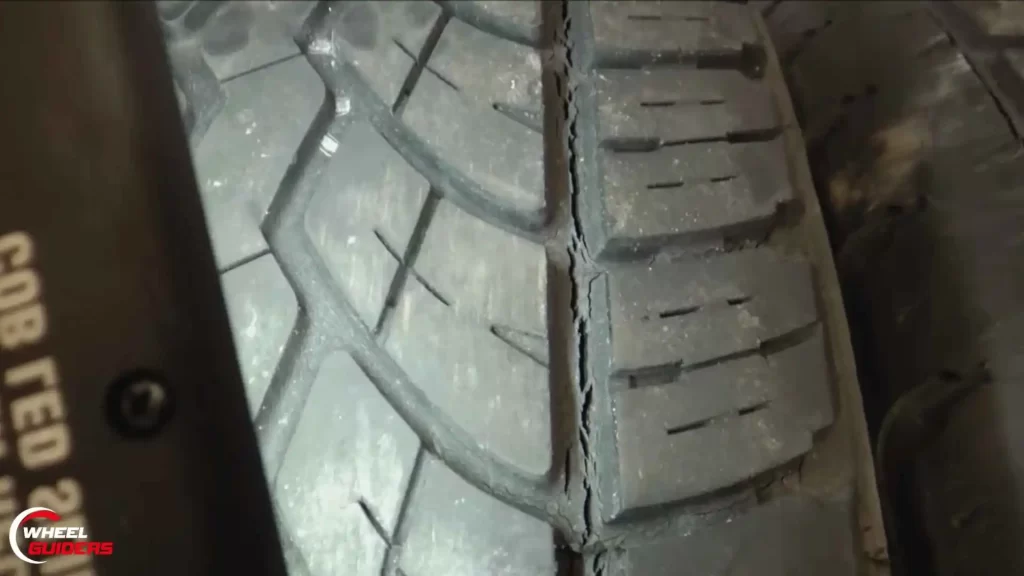
Testing is the most reliable method to determine whether the tires have been severely dry rotted or just mild. Inspect the tires for cracks or fissures in the sidewalls and treads. Michelin advises replacing more than seven years old tires, irrespective of how well they are maintained.
You can also check for dry rot visually with a squeeze test. It is a sign of dry rot if the sidewalls feel stiff and brittle.
If you want to be sure of the condition of your tires, it is advisable to have them checked by a specialist. Always prioritise the safety of yourself as well as others on the road.
Conclusion – Why Do Michelin Tires Dry Rot
Dry rot is a common problem that affects tires regardless of their size, design and quality. To elongate the life of the tire and ensure the utmost safety, comfort and handling, it’s best to inspect tires visually every once in a while. If you tend to forget, then it is better to make a routine of inspecting them every time you refuel your vehicle.
It is also important to get your tires inspected by a tire expert to check them thoroughly for any issues or damages. Repairing emerging damages by their symptoms beforehand can be helpful and save us from the high expenses of replacing tires and ensure our safety.
Michelin tires are one of the best and most trustworthy brands of tires. Throughout the years, Michelin has become a well known company. Michelin typically uses high quality components to create excellent products.
Confused on why do Michelin tires dry rot? Most of the Michelin tire consumers who have been using Michelin tires have shared their phenomenal experiences. All of these reviews were handpicked from consumers who had at least 4 – 5 years of experience.
All tire brands are subjected to dry rot after prolonged use. Still, if Michelin tires are properly maintained without adding excessive stress or pressure beyond their capacity with evenly distributed weight on the vehicle, they will leave a positive impression on you.
Although Michelin tires are generally reliable, it is important to have them inspected and repaired by a tire expert if you notice any signs of dry rot to prevent further damage. By reading and understanding this article, I hope this query on why do Michelin tires dry rot must have been cleared. You can easily prevent your tires from dry rotting by these simple tips and tricks.
